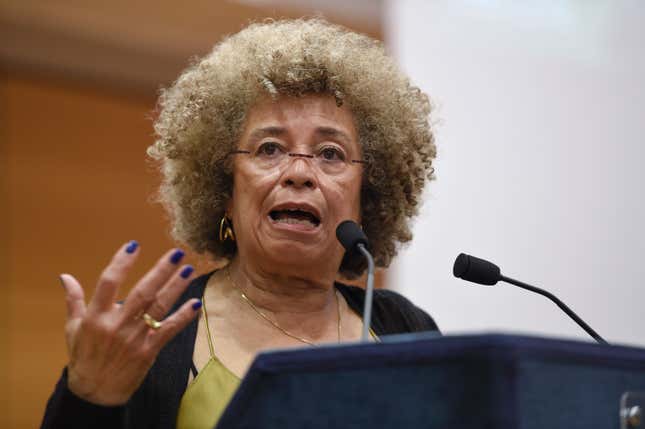Butler University Accused of Canceling Angela Davis Event Because of Her Support for BDS
Latest

Butler University students are demanding answers after the school’s administration canceled a campus event that was supposed to feature the prison abolitionist and feminist scholar Angela Davis.
The administration says it canceled the talk because officials didn’t follow proper protocol when booking Davis; students say the decision was the result of pressure from Zionist students on campus, who were opposed to Davis’s longtime support of the Boycott, Divestment, and Sanctions movement.
Roua Daas, the director of the Student Government Association’s diversity, equity, and inclusion board, was involved in planning the virtual event for months, and accused the university of misleading students about the reasons why it was canceled.
“Butler staff and administration gave an array of inconsistent and unfounded justifications for its racist and authoritative cancelation: ‘failure to follow procedure,’ ‘too high of an honorarium’ and ‘inappropriate timing,’” Daas wrote in a letter to the editor for Butler’s student paper, the Collegian. “Although a statement released by the Student Government Association stated that the event will be postponed, Angela Davis’ team, along with the behind-the-scenes conversations with university officials, indicated that the contract had been terminated and the event was canceled.”
-

-

-

-

-

-

-

-

-

-

-

-

-

-

-

-

-

-

-

-

-

-

-

-

-

-

-

-

-

-

-

-

-

-

-

-

-

-

-

-








































